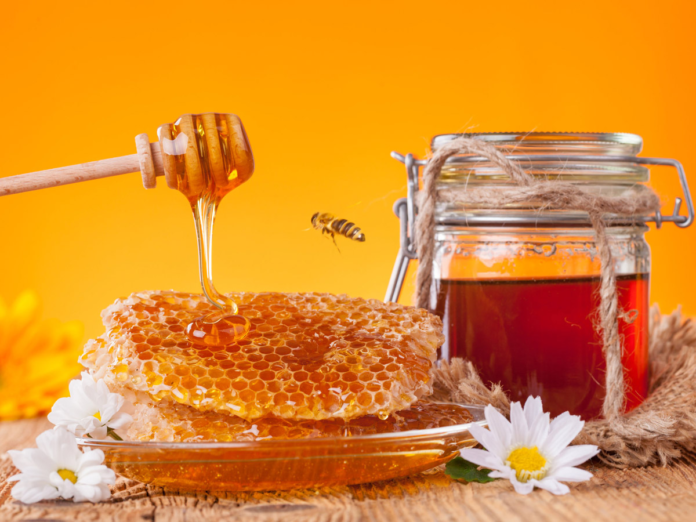Honey, the viscous liquid produced by bees, has been a staple in human diets for millennia. Prized for its sweetness, honey offers a natural alternative to refined sugar and boasts a surprising range of health benefits. But beyond its familiar taste, the world of honey is a fascinating one, filled with diverse varieties boasting unique flavors and properties.
Unveiling the Health Benefits of Honey
Honey’s health benefits stem from its unique composition. It’s a rich source of natural sugars like fructose and glucose, readily absorbed by the body for energy. However, unlike refined sugar, honey also contains a treasure trove of vitamins, minerals, enzymes, and antioxidants. Let’s delve into some of the key ways honey can contribute to your well-being:
1. Antioxidant Powerhouse:
Honey is loaded with antioxidants, including flavonoids and phenolic acids. These antioxidants combat free radicals, unstable molecules that damage cells and contribute to chronic diseases.
2. Wound Healing Magic:
Honey’s antibacterial and anti-inflammatory properties have been recognized for centuries. Topical application of honey can promote wound healing, reduce inflammation, and even prevent infections.
3. Soothes Coughs and Sore Throats:
Honey’s antimicrobial properties can help fight bacteria and viruses that cause coughs and sore throats. Its demulcent properties also coat the throat, providing a soothing effect.
4. Boosts the Immune System:
Honey contains small amounts of bee pollen, which some believe can stimulate the immune system. While research is ongoing, honey’s general antioxidant and antimicrobial properties may indirectly support immune function.
5. Potential Digestive Aid:
Honey’s prebiotic properties may promote the growth of good bacteria in the gut, contributing to a healthy digestive system.
6. Manages Blood Sugar :
While honey is a sugar, it has a lower glycemic index than table sugar. This means it causes a slower rise in blood sugar levels, potentially benefiting individuals managing blood sugar levels.
It’s important to remember that these benefits are most pronounced when honey is consumed in moderation. Honey still contains calories, so enjoy it as part of a balanced diet.
A World of Flavors: Exploring Honey Varieties
The world of honey extends far beyond the generic supermarket jar. The taste and properties of honey can vary significantly depending on the floral source the bees collect nectar from. Here’s a glimpse into some popular honey varieties:
a. Manuka Honey:
Sourced from the Manuka bush in New Zealand, Manuka honey is prized for its potent antibacterial properties, particularly against the bacteria Staphylococcus aureus.

b. Sidr Honey:
This honey, originating from the nectar of the jujube tree, boasts a dark amber color and a complex, slightly caramel-like flavor. It’s revered for its potential digestive and immune-boosting benefits.

c. Acacia Honey:
Known for its light color and mild, floral taste, acacia honey is a popular choice for those seeking a delicate sweetness. It’s also slow to crystallize, making it a favorite for drizzling.

d. Buckwheat Honey:
This dark and robust honey has a strong, slightly malty flavor. Rich in antioxidants, buckwheat honey is a good choice for those looking for a powerful punch of health benefits.

e. Clover Honey:
A classic variety, clover honey has a light golden color and a sweet, mild flavor. It’s often used in baking and cooking due to its neutral taste.

f. Forest Honey:
A multifloral honey sourced from a variety of wildflowers, forest honey offers a complex and diverse flavor profile. The specific taste depends on the dominant flowers in the area.
This is just a small sampling of the vast array of honey varieties available. Exploring different honeys allows you to discover unique flavor profiles and potentially reap the specific health benefits associated with different floral sources.

Selecting and Storing Honey: Maximizing the Benefits
To maximize the health benefits of honey, choose raw, unfiltered honey whenever possible. Raw honey retains all its natural enzymes, vitamins, and minerals that may be lost during processing.
Store your honey in a cool, dark place. Honey has a natural antibacterial property that helps it stay fresh for a long time. Ideally, store it in a glass jar to avoid any potential interaction with plastic containers.
A spoonful of Honey: A Taste of Tradition and Wellness
Honey’s journey from beehive to table is a testament to nature’s remarkable alchemy. This golden liquid offers not just a touch of sweetness but a wealth of potential health benefits. So, the next time you reach for a sweetener, consider the magic of honey. Explore the diverse varieties, savor the unique flavors, and experience the health-promoting properties of this natural wonder.



Your blog has become an indispensable resource for me. I’m always excited to see what new insights you have to offer. Thank you for consistently delivering top-notch content!